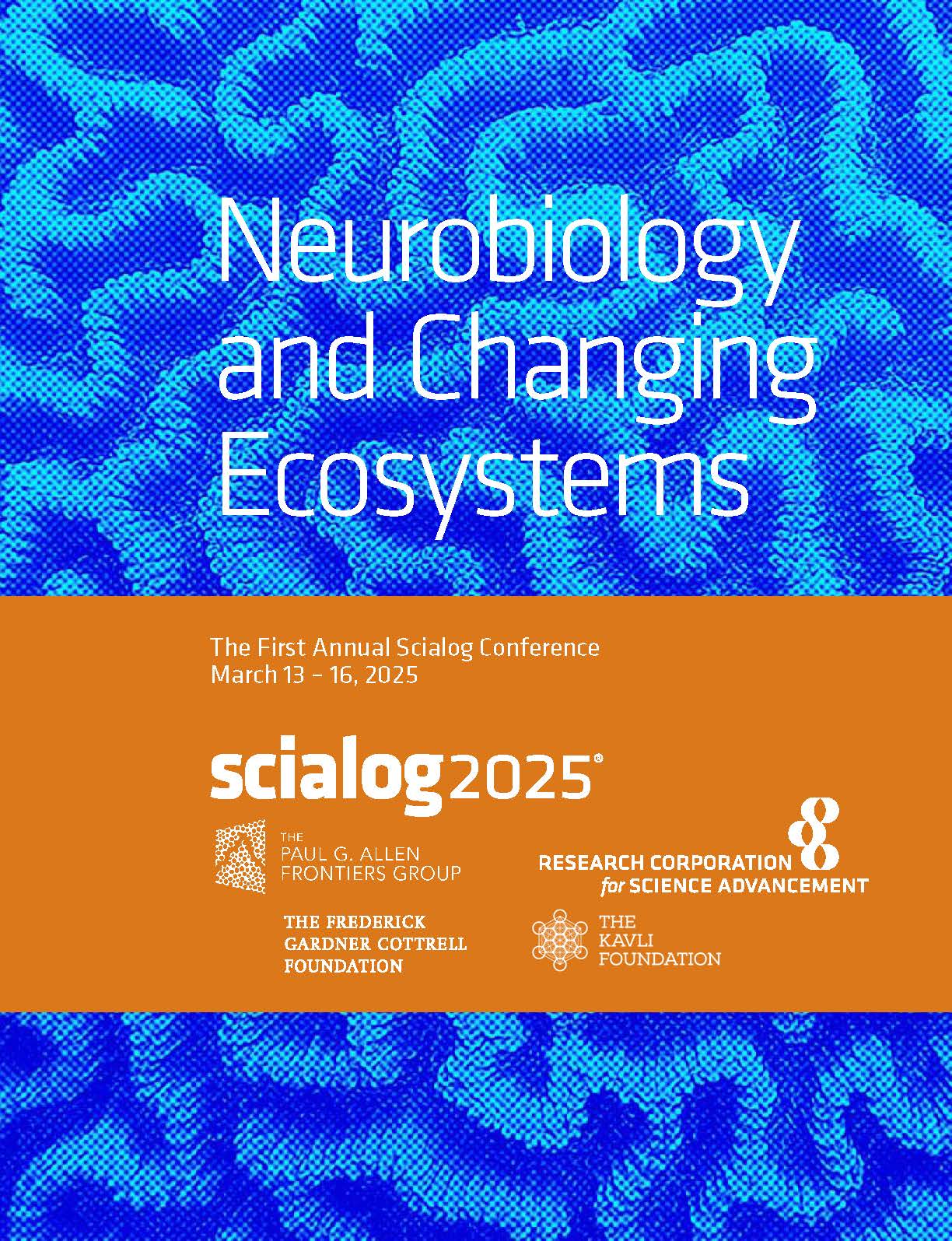Neurobiology and Changing Ecosystems
Date
The next meeting in this series will be March 12 – 15, 2026.
Location
Loews Ventana Canyon Resort, Tucson, Arizona
Lead Program Director
Administrative Contact
Sponsors
The Paul G. Allen Frontiers Group
Frederick Gardner Cottrell Foundation
The Kavli Foundation
Research Corporation for Science Advancement
Theme
Neural systems, shaped by millions of years of evolution, enable living things to perceive and react to their surroundings. But how does the nervous system adapt to today’s unprecedented challenge of rapid and extensive human-caused environmental changes, including exposure to pollution, toxins, and increasingly unpredictable environments? Interdisciplinary and transformative research is needed to uncover the chemical, physical, and biological principles that will aid our understanding of these complex processes, and potentially reveal what adaptive features equip organisms to overcome environmental stressors. This three-year Scialog series aims to create a dynamic community of about 50 early career scientists with diverse scientific expertise and perspectives – cell biology, genetics, neurophysiology, climate science, environmental chemistry, physical modeling, toxicology, and other fields. Together, they will develop blue-sky collaborative research projects to explore neurobiological response to change and advance our understanding of the brain’s chemistry, physiology, and adaptation mechanisms that allow survival under environmental stress.
Facilitators
Approximately 10 senior scientists will serve as Facilitators to frame the large questions under consideration, guide discussions, and evaluate proposals.
Fellows
Approximately 50 early career faculty will be invited to participate as Fellows, with early career spanning the time from the first year on the faculty through recently post-tenure.
- To nominate yourself: Submit a Scialog Fellow Application here. Log in or create a new account, then go to My Applications and start a New Application. The “Scialog Fellow Application – 2025” application will be visible.
- To nominate another early career scientist: Contact the program director or ask your colleague to self-nominate using the steps above.

